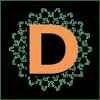Abstract
Andrei Tarkovsky’s films have become bywords for the lengthy and challenging. Despite this reputation for sprawl, there was an undercurrent of concision in his thought and work. This article turns to a rarely discussed strand in Tarkovsky’s art: his Polaroid photographs. The article contrasts Tarkovsky’s approach to photography with the long form narrative experiments he undertook in film, in order to argue that, perhaps somewhat paradoxically, Tarkovsky appreciated brevity, and that an understanding of Tarkovsky’s art that focuses on his mobilisation of extended duration tells only a partial story. This argument is constructed in opposition to received interpretations of Tarkovsky’s work.
How to Cite:
Riley, J., (2012) “Tarkovsky and Brevity”, Dandelion: Postgraduate Arts Journal and Research Network 3(1). doi: https://doi.org/10.16995/ddl.265
Downloads:
Download PDF
581 Views
1413 Downloads

